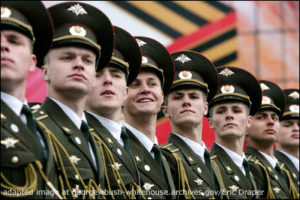Russians Now Want Social State and Democracy More than Military Might, Institute of Sociology Says

(Paul Goble – Window on Eurasia – Staunton, November 6, 2018)
A new survey by the Institute of Sociology of the Russian Academy of Sciences says that Russians still want their country to be a great power but that only on condition that it is concerned about the well-being of its own citizens, a major shift in priorities from 2014 when state power far outranked everything else.
Kommersant journalist Viktor Khamrayev reports on the shifts the institute’s scholars have found in Russian attitudes over the last four years, changes that are at odds with Vladimir Putin’s expressed preferences and that help to explain both voting patterns and protests in recent months (kommersant.ru/doc/3792003).
“Justice, great power status and democracy are the preferences Russians have expressed to the scientific research center of the Institute of Sociology,” Khamrayev says. In October 2014, only “justice and great power status were important for Russians.” And then, Russians viewed the Crimea’s annexation as “the restoration of justice at the level of foreign policy.”
Four years ago, two Russians out of three said that “‘Russia must be a great power with strong armed forces.’ Now only 49 percent say that while 51 pe3rcent are convinced that ‘Russia must in the first instance be concerned about the well-being of its own citizens and its power status and military might are secondary.'”
Khamrayev notes that today “in the opinion of the majority, the status of ‘a great power’ depends not as much on foreign as on domestic policy,” which must ensure a developed economy and a high level of social well-being, according to Vladimir Petukhov, one of the sociologists who led the study.
Foreign policy issues remain important “for a minority.” Thirteen percent say that “Russia must ‘become a world center of influence,'” eight percent say it must be a bridge between Europe and Asia, and seven percent say it should seek control over the territory of the former Soviet Union.
Over the last four years, the institute found, Russians have shifted in their ideas about what the future of Russia should look like. Social justice remains central: it in fact rose from 47 percent to 59 percent.” This isn’t about social levelling, Petukhov says, but about equality of opportunity and before the law.
Russians have also increased the value they put on democracy. In 2014, only 27 percent said that was a priority. Now, 37 percent do.
[Article also appeared at windowoneurasia2.blogspot.com/2018/11/russians-now-want-social-state-and.html]
